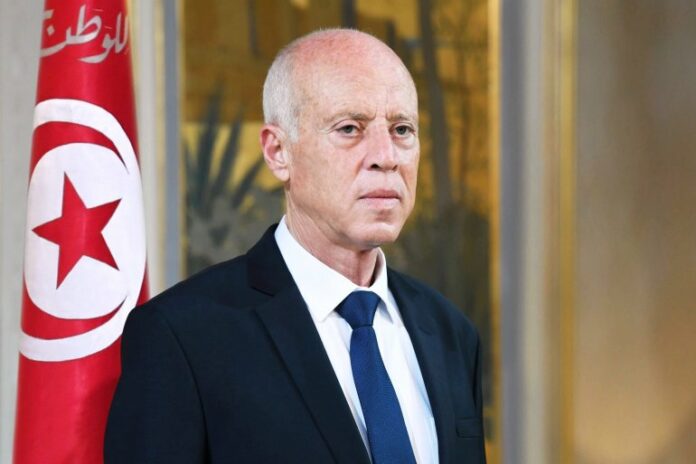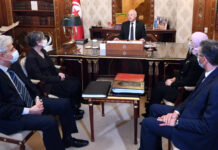In the weeks to come, Tunisian politicians and citizens will continue to argue over whether President Kais Saied’s executive actions on July 25—unilaterally dismissing Tunisia’s prime minister, suspending its parliament, and declaring a state of emergency—constituted a “coup.” It is already clear, however, that certain regional actors are clearly hoping that it proves to become one. While official reactions from the Arab states have largely urged calm and conciliation, media outlets in Egypt, Saudi Arabia, and the United Arab Emirates (UAE) have overtly favored an end to democratic politics in Tunisia;that’s how Khalid al-Jaber ,a journalist in the national interest,began his article.
According to him,although it lacks the tremendous geostrategic and geopolitical value of other Arab countries such as Egypt and Saudi Arabia, Tunisia is very important in other, mostly symbolic, ways. In December 2010, Tunisia became the birthplace of the “Arab Spring,” a series of uprisings across the Middle East that led to the fall of several authoritarian Arab leaders, including former President Zine el-Abidine Ben Ali. In the years after the 2011 revolutions, and following crackdowns against political reformers in the Arab Gulf states, a military coup in Egypt, and bloody civil wars in Libya, Syria, and Yemen, Tunisia has continued to pursue parliamentary politics, earning it a reputation as the sole success story of the Arab Spring. For this reason, preventing democracy from in the North African country has long been important to regional Arab dictators, which have feared the threat democratic movements pose to their control, as well as the danger of well-organized Islamist parties gaining power through democratic elections in the Middle East.
Khalid Al -Jaber explained that The Gulf region has been involved heavily in Tunisia after the Arab Spring, and intra-Gulf disagreements have influenced the country’s politics. On one side, Qatar, which largely supported the Arab Spring, forged close ties with Tunisia’s leadership,provided financial aid to Tunis, and played host to Saied, former Prime Minister Hichem Mechichi, and Speaker of Parliament (and Ennahda chairman) Rached Ghannouchi in three separate visits in November 2020 and May 2021.
While the Biden administration understandably has other priorities in the Middle East and North Africa, from the stalled nuclear talks with Iran to the Yemen conflict and the complicated situation in Libya, the White House should not ignore events in Tunisia. Given the extent to which Tunisia and Libya’s futures are intertwined, U.S. leadership will have a harder time encouraging Libyan parties to resolve their problems through peaceful means if there is instability in Tunisia. Moreover, the health of democracy in Tunisia is directly connected to Libya’s democratic growth and vice versa. Put simply, if the administration is serious about resolving the Libyan crisis, it cannot ignore Tunisia , according to the same source.











